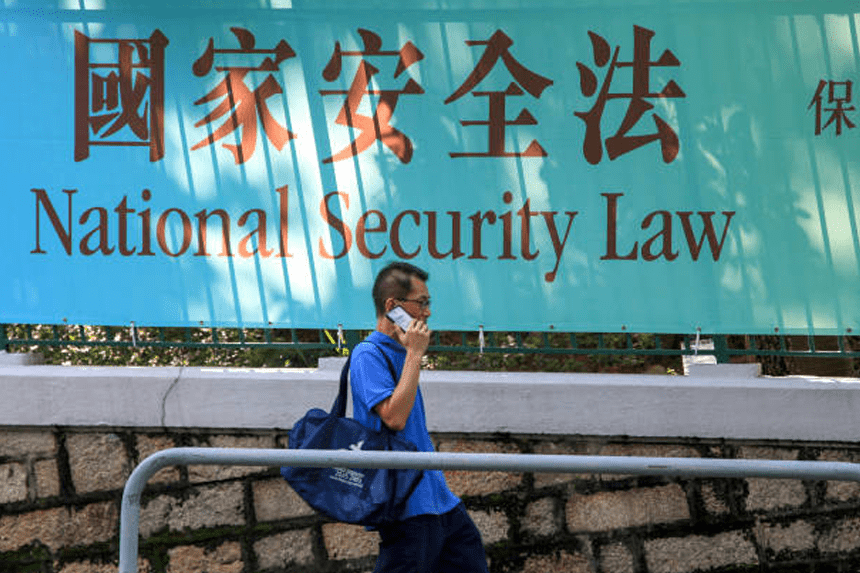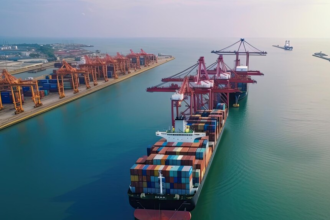Since it was adopted in 2020, the National Security Law (NSL) has had a significant effect on Hong Kong. Beijing designed the law to combat actions including secession, subversion, and foreign intervention, therefore addressing supposed challenges to China’s sovereignty. Supporters contend that keeping peace and stability in the city depends on it, while others say it compromises Hong Kong’s autonomy and limits freedoms.
We shall explore in this paper the consequences of the National Security Law on the political environment, personal liberties, and daily life of Hongkongers. We shall investigate how this legislation has changed the city by looking at its effects on political activity, freedom of expression, and monitoring.
Describe the National Security Law.
Beijing implemented the National Security Law in 2020, one year following significant pro-democracy demonstrations in Hong Kong. These demonstrations were a direct reaction to believed Chinese government invasions of the city’s autonomy. The Chinese government passed the law in reaction to the upheaval under the declared intention of safeguarding national security and bringing stability back.
The law criminalizes a broad spectrum of crimes, including supporting Hong Kong’s independence, erasing central government power, and plotting with foreign agents to compromise national security. The legislation covers foreign nationals and companies as well as Hong Kong residents who might participate in events judged to compromise China’s sovereignty.
Pro-democracy supporters, who contend that the National Security Law compromises Hong Kong’s autonomy and compromises the liberties promised under the “one country, two systems” framework, have opposed it rather fiercely. Designed to safeguard Hong Kong’s distinct political and economic institutions for fifty years following the British handover in 1997, this structure was meant the bill has generated a lot of worry about Hong Kong’s global financial hub status and how citizens that their rights would be further compromised under Beijing’s increasing sway.
How Has the National Security Law Affected Hong Kong?
The National Security Law has changed Hong Kong’s political and social fabric fundamentally since it was adopted. Large-scale demonstrations, which were previously a frequent occurrence in Hong Kong’s political scene, have dropped off among other most obvious changes. In the past, citizens could openly assemble in public venues to express their ideas on anything from social justice to governmental policies. Many have been discouraged from planning or attending such events, nevertheless, following the law’s passage.
This is mostly related to the anxiety over arrest. Hundreds of pro-democracy activists, reporters, and politicians have been arrested on National Security Law-related allegations since 2020. Widespread self-censorship among many Hongkongers results from their fear of getting arrested for participating in a protest or expressing opposition. People are more and more reluctant to freely express their political opinions, particularly on social media or in public venues.
Apart from stifling demonstrations, the National Security Law has also limited the once-active media scene of the city. Many independent media sources have been pushed to close or run under great strain. The most well-known example is the closing of Apple Daily, a pro-democracy publication that authorities seized and whose assets were frozen when the leadership was arrested. This has generated grave questions regarding press freedom and the direction of autonomous journalism in Hong Kong. Read another article, Hong Kong Pro-Democracy Leaders Jailed
The Function of Monitoring Applying the National Security Law
The National Security Law’s emphasis on surveillance and encouragement of people to disclose suspicious activity is another crucial feature. Establishing hotlines and other reporting mechanisms, the Hong Kong government invites people to let the authorities know about any possible legal transgressions. This has led to a change toward a society more focused on surveillance, whereby people feel obliged to track and expose the activities of their fellow people.
Prominent pro-Beijing activist Innes Tang has led the front stage in advancing this surveillance culture. According to Tang and his associates, hundreds of tip-offs concerning people and companies they think violate the National Security Law have been turned in. Tang argues that such acts are required to guarantee Hong Kong’s security and stability. These reports, from his perspective, are a kind of civic obligation that keeps the city orderly.
Many Hong Kongers, meanwhile, have voiced worries about the ramifications of this new culture. Critics contend that it creates an environment of dread whereby people hesitate to express their opinions or even participate in daily activities without running the danger of being recorded. This kind of social control reminds one of more authoritarian governments and has created a populace mistrust and division.
What repercussions follow from the National Security Law?
Those found guilty of breaking the National Security Law risk heavy fines. Depending on the type of offense, people could spend their lifetime behind bars. More than 300 people—including well-known activists, opposition leaders, and even regular residents accused of voicing anti-government comments—have been arrested on national security grounds since the law’s passing.
Apart from arrests, the National Security Law has resulted in the dissolution of various political parties, civil society groups, and pro-democracy organizations. These organizations have been charged with subverting the government or conducting covert operations. Many of Hong Kong’s pro-democracy voices have been essentially muffled by the law, therefore transforming the political scene of the city to be mostly controlled by pro-Beijing personalities.
The reach of the law transcends political agitation. Sometimes it has even singled out people for apparently benign behavior, including sharing critical remarks on social media or helping out overseas in protests. This has produced a situation whereby many Hongkongers feel driven to hide their personal views or participate in covert political activity in order to evade official notice.
Under the National Security Law, what might Hong Kong's future hold?
Future developments of the National Security Law reveal no indication of relaxation or repeal. Rather, it seems that the law will keep molding Hong Kong’s future in the coming years. The political scene in the city has changed drastically; pro-democracy groups either move underground or dissolve under government pressure.
The law affects more than just politics and the media. For Hongkongers, who today live under continual danger of surveillance and inspection, it has changed daily life. Estimates of the number of city dwellers who have left in recent years range from almost 300,000 to many more. For those who still live in Hong Kong, life has grown more insecure since many believe their liberties are being progressively undermined.
Finally: negotiating Hong Kong's evolving terrain
In essence, the National Security Law has changed Hong Kong’s political, social, and economic institutions drastically. Although some saw the law as a vital step toward restoring peace and security, it has generated grave questions over the loss of civil liberties, press freedom, and the autonomy given to Hong Kong under the “one country, two systems” paradigm.
The future remains unknown for Hongkongers. Widespread self-censorship, a crackdown on political activity, a climate of mistrust and dread, and suspicion resulting from the National Security Law have all been outcomes. Residents as well as the foreign community should keep updated on the law’s continuous influence as the city adjusts to this new reality.
Watching Hong Kong negotiate the difficulties this law presents is the globe. The way people react to the National Security Law and the more general political developments altering their city will determine its future. Only time will reveal whether Hong Kong will be integrated into the larger Chinese political system or if it can retain its special identity and liberties.








